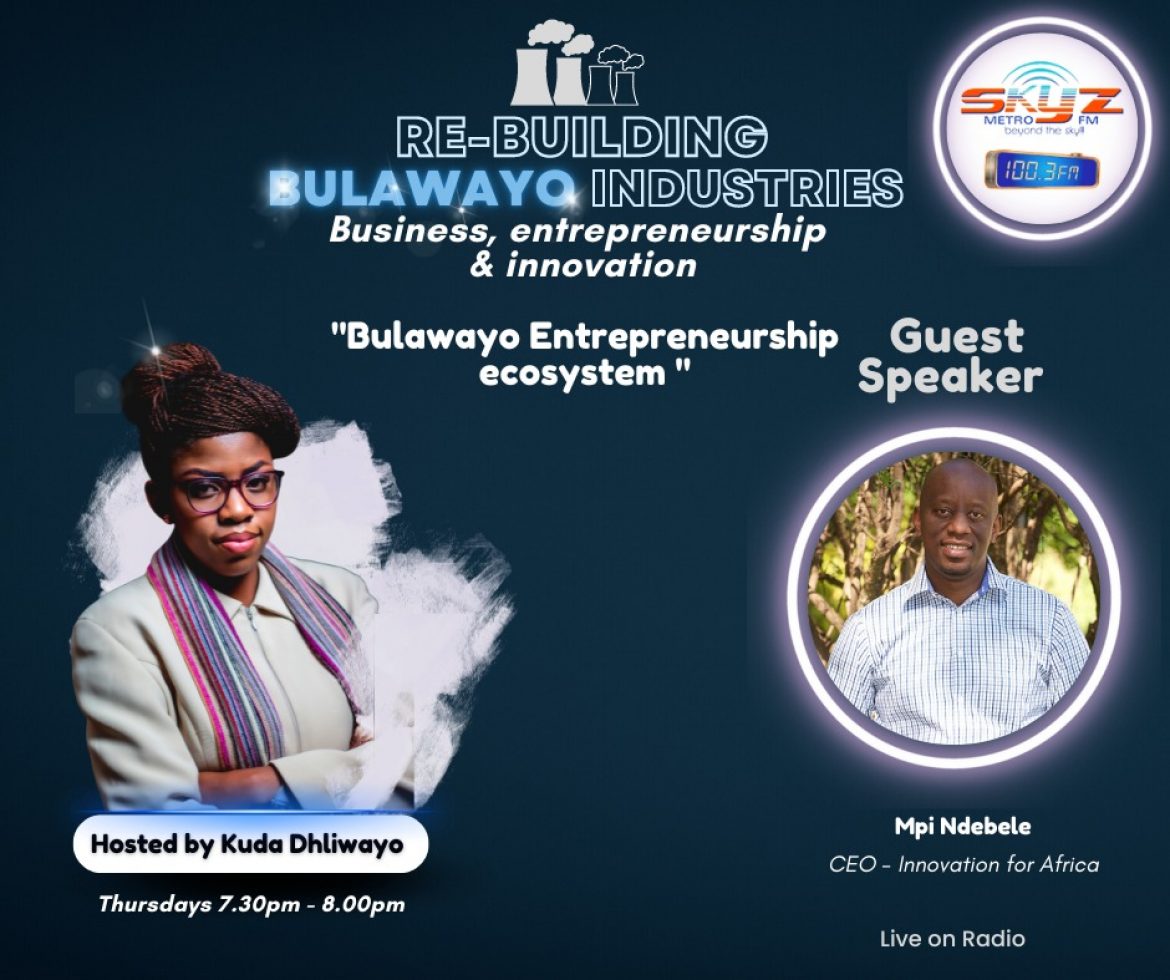
Radio Interview: Building the Bulawayo Entrepreneurship Ecosystem
I had the privilege of being interviewed on Skyz Metro FM on the show titled “Rebuilding Bulawayo Industries” hosted by Kuda Dhliwayo. These conversations seek to engage concerned parties and thought leaders in the city who can be the catalysts for the progress that we so need.
In this episode we focused on the Bulawayo Entrepreneurship Ecosystem. What will it take to set up Bulawayo as a destination of choice for investment? How might we set our startups up to establish and grow? How do we make it easy for startups to succeed?
Every city has an ecosystem, whether we know it or not. The question is, how intentional is the ecosystem? Is it a community of strategically inter-connected parts all working towards the same objective? What will it take to empower the community and all its domains including the following:
- Entrepreneurs: these founders of startups need all the support they can get from many different sides. If startups will form a part of the growth of African economies then what are we doing to empower them as best as possible?
- Policy makers: nations like Tunisia and Nigeria have led the way in crafting policy that puts focus on startups. They have legislation in place to define a “startup” and to give tax cuts and other benefits to anyone supporting innovation or embarking on a entrepreneurial venture. Creating the right environment is critical in order to set up our startups for success.
- Industry and corporate: these will support startups in various ways. ICT providers can ensure the right infrastructure is in place, established businesses should consider innovation funds and various ways to support startups and even partner with them.
- Non-profit support: many CSOs and other non-profit organisations are working to build capacity in entrepreneurs. Such organisations should also be seeking to engage the private sector and to partner towards empowering the ecosystem and ultimately our startup founders.
- Finance: venture capitalists and angel investors are key to this conversation. Not only to our startups need financing but we also have an obligation to ensure that we help them become investment-worthy. Especially in Zimbabwe, survival mode has had people hustling instead of building reputable ventures. To the extent that our business are investment-ready is to the extend that we will attract financing for them.
- Shaping culture: Media plays a huge role in celebrating entrepreneurship and telling stories that will start to define a new narrative. What will it take to see a new culture emerge where innovation is the norm and Africans are identifying African issues and creating solutions for them?
- Academic institutions: in a fast-changing world, is our education equally adapting to be fit for purpose? From pre-school through to graduate level, it is no longer an option to not adapt. It is the duty of these institutions who are the stewards of the human capital on which we rely to offer a service that is relevant for the 21st century and beyond. This is where ideas are generated and incubated. This is where critical thinking and problem solving are unlocked and instilled as culture.
So perhaps it is true that we are the ones we have been waiting for? I believe that as a city we have what it takes to ensure progress. It will take a coming together to engage and realise the needful for a prosperous city. It is time to embrace the mindset that says we can and we will. So take your marks…